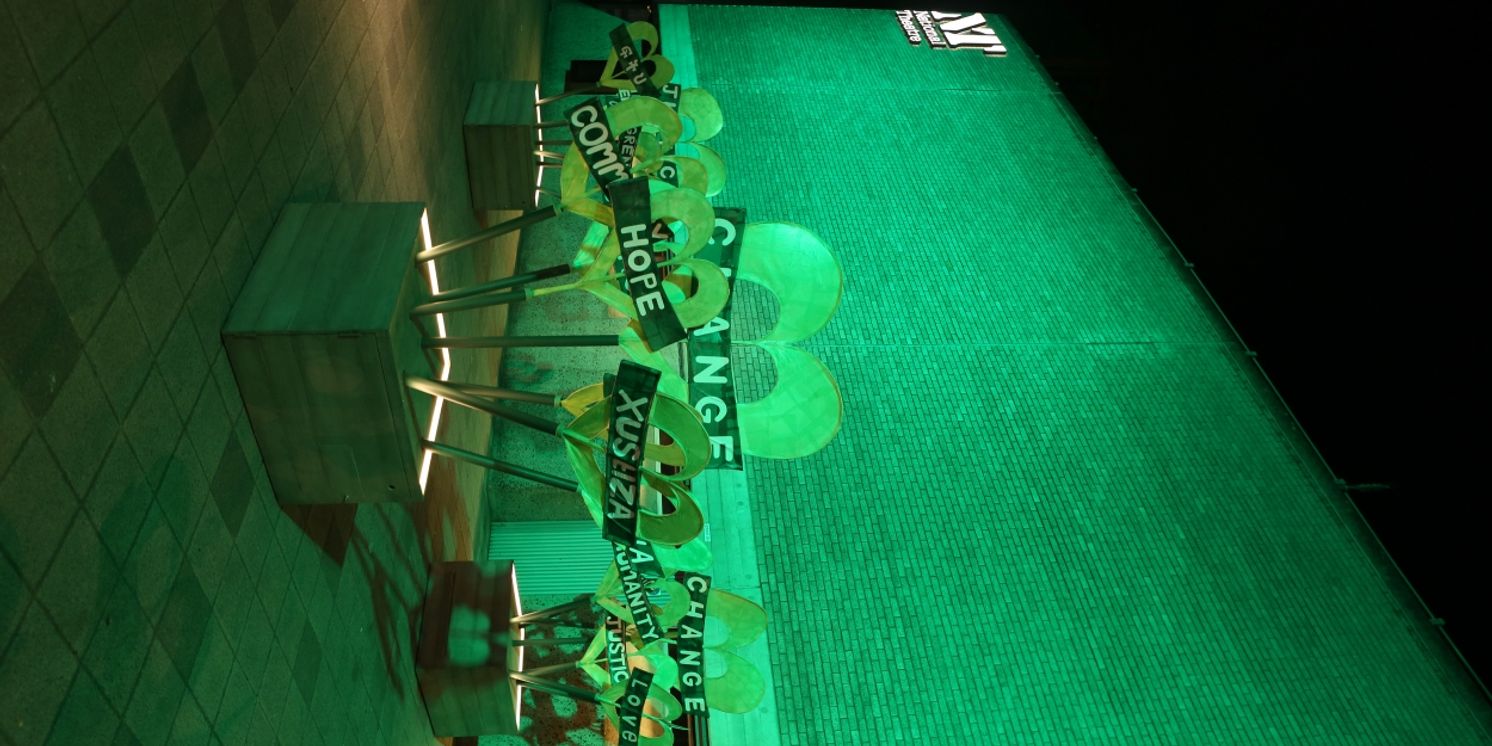Review: GRENFELL: IN THE WORDS OF SURVIVORS, National Theatre
A new play that gives gives centre stage to the survivors of the terrible tragedy

![]() Harrowing.
Harrowing.
This is the fourth play that I have seen based on the appalling fire of 2017 that destroyed a tower, destroyed a community and destroyed so many families. Unlike the previous three, Gillian Slovo uses little from the transcripts of the Inquiry, focussing instead on the survivors’ words, interviews getting beneath the concrete and into the hearts of those who lived and loved within the fatally mismanaged block.
If the coldness of the legal language and procedures condemned the perpetrators in those earlier dramas, this terrifying evening brings passions to the surface, the spirit that once bound a group of residents now binding a group of campaigners.
It’s a hard watch. We hear first of the kids growing up playing in their flats and in the lobby areas, of food shared at religious festivals, of people falling in love. Then, an abhorrent policy hiding in plain sight, makes itself known. Common facilities are built over, repairs left undone, consultations barely honoured all underpinned by lies. In its wake comes the myriad of microaggressions that let people know that they are not wanted, that the council and its many powerful friends would rather they were gone, Grenfell demolished and townhouses (“Do I hear £2m?”) built in chi-chi Notting Hill. You barely need to join the dots.
In keeping with the ethos of the interviewees’ evocation of Grenfell, the fourth wall is never even constructed, let alone breached. The ensemble cast introduce themselves and the residents they will play (they all double as officials in drop-in inserts from the Inquiry too) and we’re encouraged to greet those sitting around us. The house lights are usually up and the cast sit amongst us when not on stage in the round. “We’re all in this together” is the message, were it not polluted by the person (a local resident) with whom the phrase is most associated. He appears briefly on video - I couldn’t raise my eyes to the screens.
We get to know our friends who suffered that night and continue to suffer to this day. The ones who stayed put (as instructed for so long that terrible night) and the ones who risked the hellish descent. The man on crutches who said goodbye to his wife not knowing if he could deal with the staircase and make it out. We get to know two of the last three who made it to ground level, the fire as capricious as an elemental devil in where it snaked with its heat and smoke and where it spared.
As a coda, we meet the real men and women on video, those who have had the words spoken by actors. They look ordinary, they look like London, but they also look like men and women out for justice - the steel in the eyes suggesting that they’ll never settle for less.
One remarks that that this catastrophe was no chance outcome, that the patterns of behaviour resolve into a mosaic that shows the intention behind what the council’s, the administrators’ and the contractors’ actions produced - it kept the powerful where they were and the powerless where they were. And it’s still, shamefully, doing so today,
More than ever, I feel that the site should remain as it is, a memorial to the survivors, an urban beacon warning of the consequences of placing power ahead of people. But, and I can’t help feeling more than a pang of guilt about this, I am a white, educated man who knows how bureaucratic games are played - I am, by any criterion, ‘one of them’ and not ‘one of us’. The best thing I can do is to get out of the way and support whatever, how ever, whenever the survivors seek the justice they so manifestly deserve.
You can find out more about Grenfell United here.
Grenfell: In The Words Of Survivors is at the National Theatre until 26 August
Photo Credit: Sophie Wedgwood
Reader Reviews
Videos

